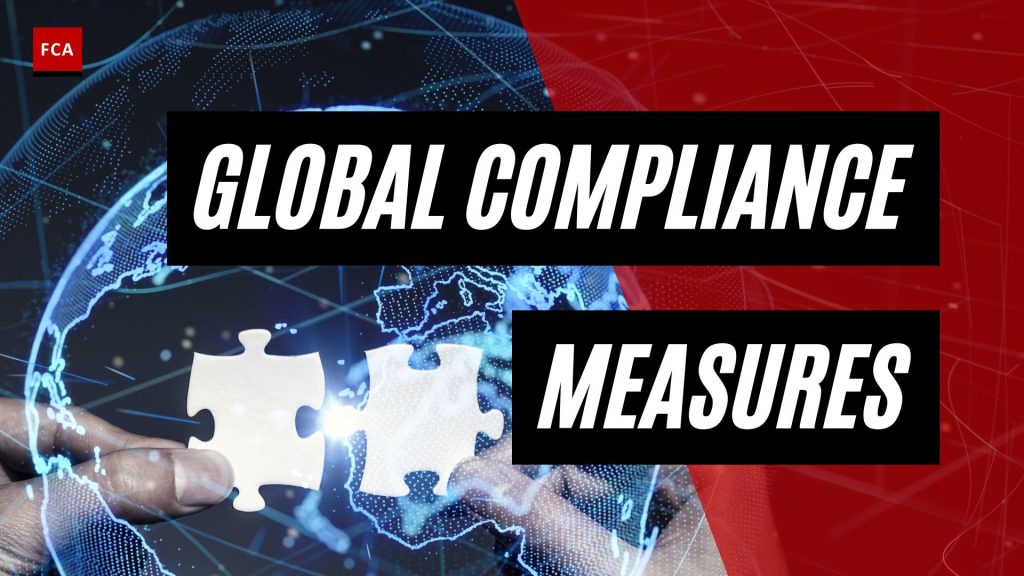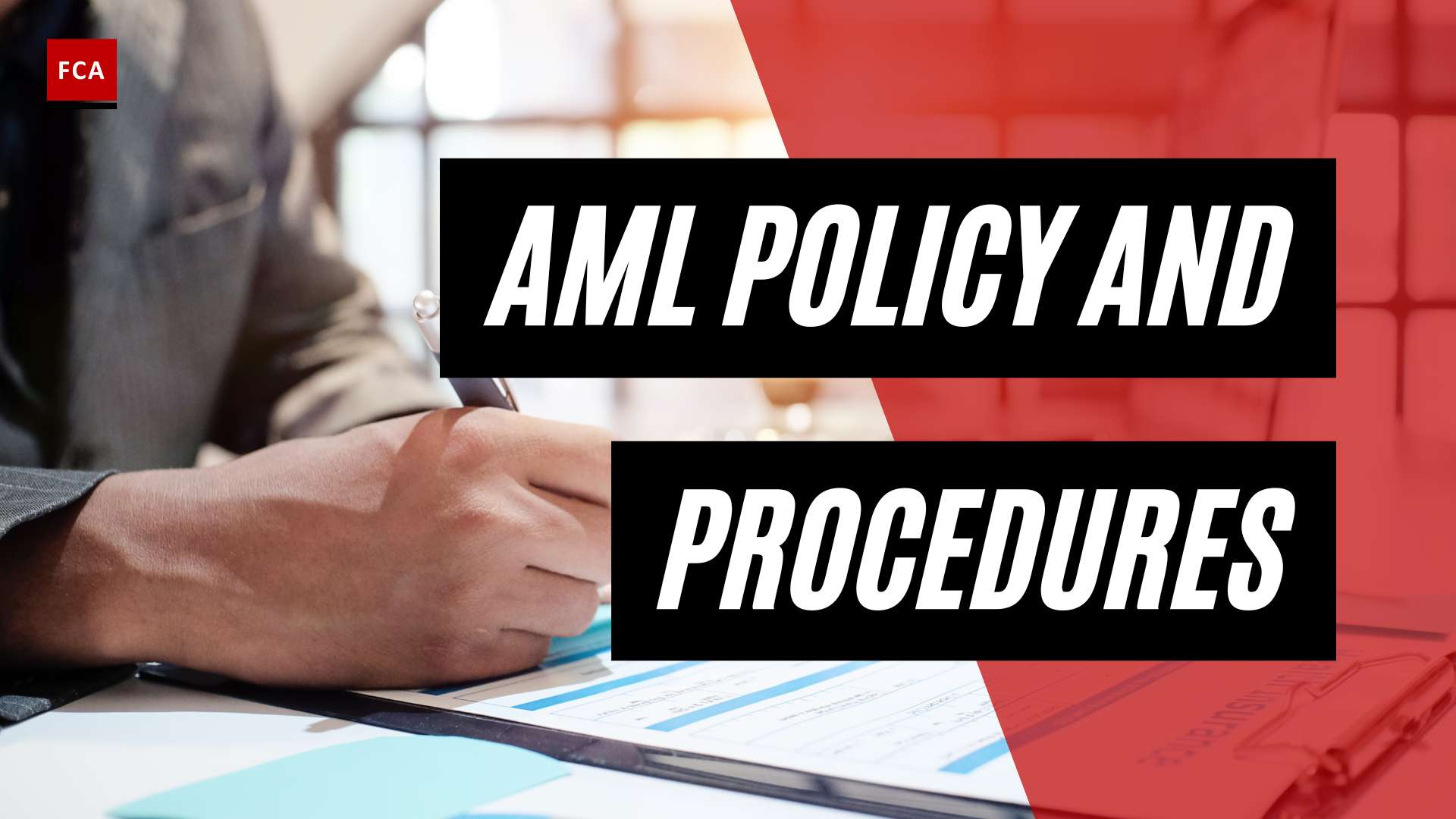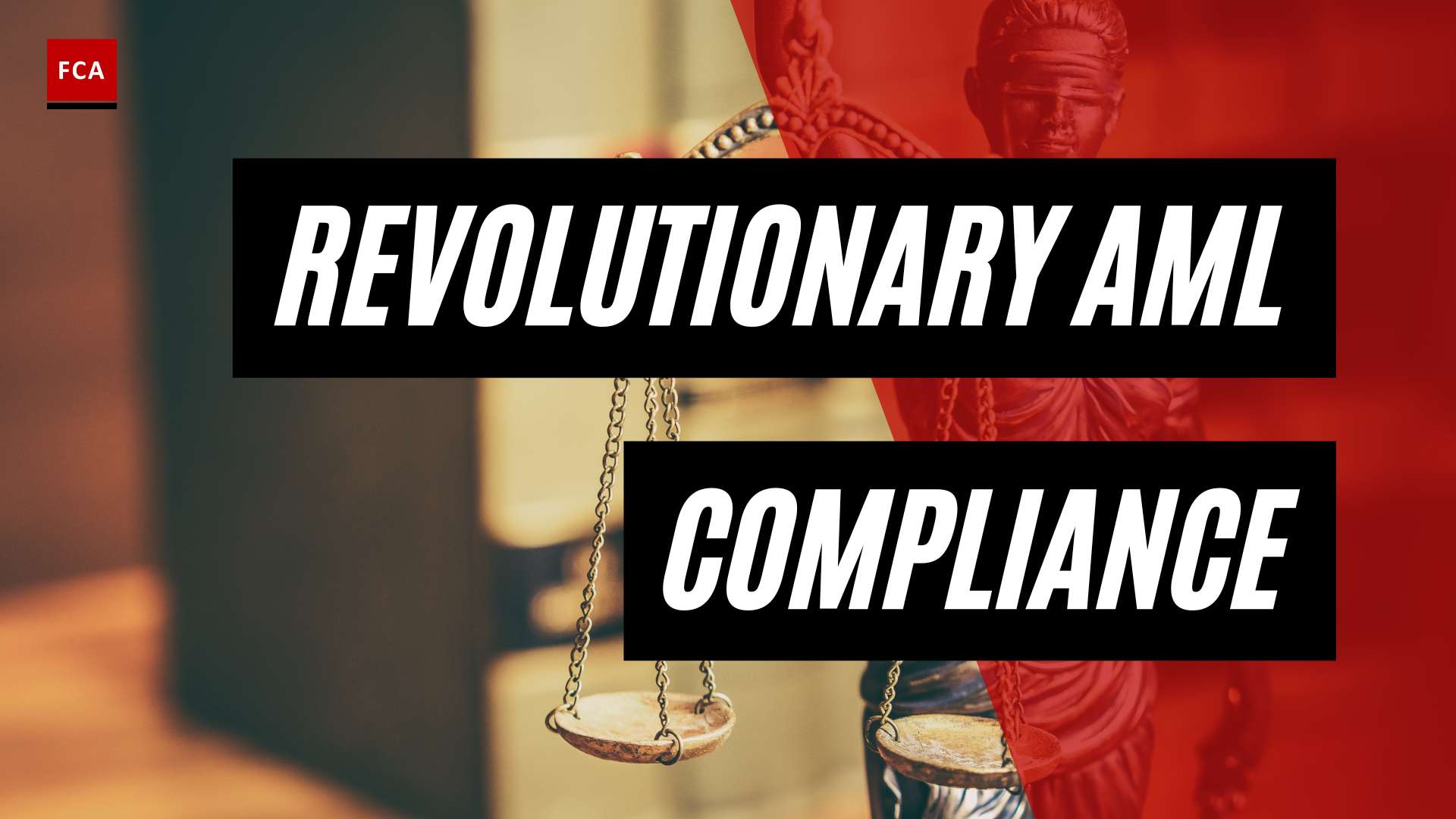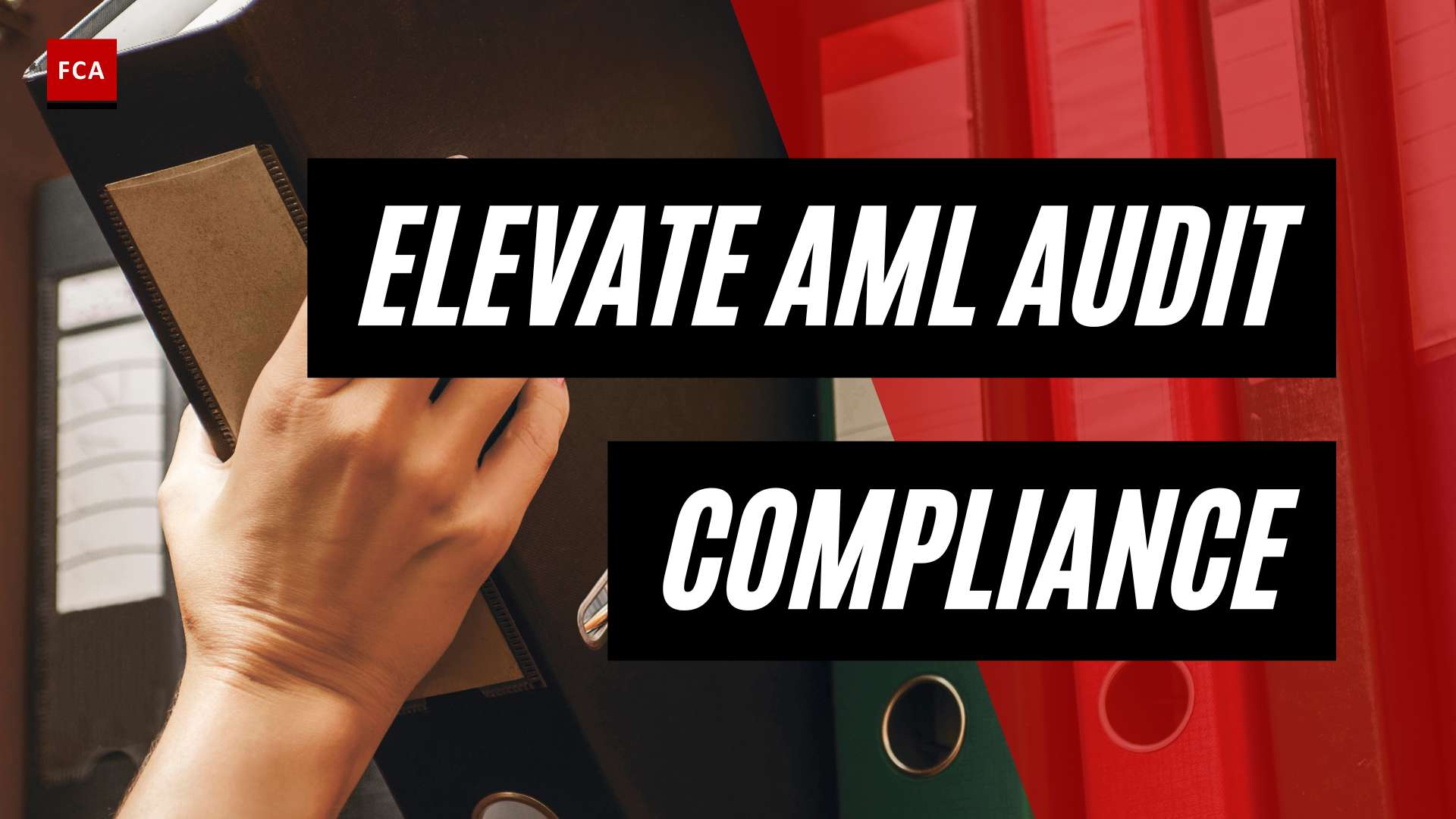Understanding AML Regulations
To effectively navigate the complex landscape of Anti-Money Laundering (AML) regulations, it is essential to have a solid understanding of the fundamentals. This section provides an overview of AML and emphasizes the importance of compliance with AML laws.
Overview of Anti-Money Laundering (AML)
Anti-Money Laundering (AML) refers to a set of laws, regulations, and procedures designed to combat illicit activities related to money laundering and the financing of terrorism. Money laundering involves the process of making illegally obtained funds appear legitimate by disguising their true origins. AML regulations aim to prevent criminals from exploiting the financial system for their illicit gains.
AML regulations require financial institutions, such as banks, credit unions, and other entities involved in financial transactions, to establish robust systems and controls to detect, prevent, and report suspicious activities. These regulations are implemented at both national and international levels to ensure a coordinated global effort to combat money laundering and terrorist financing.
Importance of Compliance with AML Laws
Compliance with AML laws is crucial for financial institutions and other entities subject to these regulations. Failure to comply can result in severe consequences, including civil and criminal penalties, sanctions, and business barriers (Unit21). The penalties for non-compliance vary depending on the jurisdiction and the specific regulations violated.
In the United States, the Bank Secrecy Act (BSA) of 1970 is a key AML law applicable to all financial institutions. Violations of the BSA can lead to fines of up to $500,000, imprisonment for up to ten years, or both (Unit21). The USA PATRIOT Act, enacted in response to the September 11, 2001 attacks, imposes additional AML compliance obligations, with potential fines of $1 million or double the value of the transaction, whichever is greater.
In the European Union, the EU Anti-Money Laundering Directives (AMLDs) establish regulatory requirements that member states must follow. The latest directive, 6AMLD, introduced stricter penalties for non-compliance, including fines of up to 5 million euros and economic sanctions.
Staying compliant with AML laws is not only a legal obligation but also a critical component of risk management and reputation protection. Non-compliance can lead to significant financial losses, reputational damage, and the loss of customer trust. It is essential for organizations to invest in robust AML compliance programs, including implementing AML compliance software, conducting AML risk assessments, and providing AML compliance training. By doing so, organizations can mitigate the risk of non-compliance and demonstrate their commitment to maintaining the integrity of the financial system.
Understanding the basics of AML regulations is the first step toward building a comprehensive compliance framework. In the following sections, we will explore specific AML regulations in the United States and the European Union, as well as enforcement actions and reporting obligations related to AML compliance.
AML Regulations in the United States
To effectively combat money laundering and ensure the integrity of the financial system, the United States has implemented several key regulations. Understanding these regulations is essential for professionals working in compliance, risk management, and anti-money laundering (AML).
The Bank Secrecy Act (BSA)
Considered the cornerstone of AML regulations in the United States, the Bank Secrecy Act (BSA) of 1970 requires financial institutions to establish robust AML programs. The BSA applies to all U.S. financial institutions, including banks, credit unions, and money services businesses. Its primary objective is to prevent money laundering and monitor suspicious financial activities.
Under the BSA, financial institutions are required to implement customer identification programs, conduct know your customer (KYC) procedures, and report certain transactions to the Financial Crimes Enforcement Network (FinCEN). Non-compliance with the BSA can lead to severe penalties, including fines of up to $500,000, imprisonment for up to ten years, or both.
The USA PATRIOT Act
In response to the events of September 11, 2001, the USA PATRIOT Act (Uniting and Strengthening America by Providing Appropriate Tools Required to Intercept and Obstruct Terrorism Act) was enacted in 2001. This act amended the BSA and granted broader powers to law enforcement and intelligence agencies to combat money laundering and terrorist financing.
Under the USA PATRIOT Act, all financial institutions in the United States are authorized to implement AML systems. This includes the establishment of robust customer due diligence procedures, enhanced scrutiny of high-risk customers, and the implementation of risk-based AML programs. The act aims to improve strategies for avoiding, identifying, and punishing money laundering and terrorist financing activities (Sanction Scanner).
The Office of Foreign Assets Control (OFAC)
The Office of Foreign Assets Control (OFAC), operating under the U.S. Department of the Treasury, plays a crucial role in enforcing AML regulations. OFAC administers and enforces economic and trade sanctions to combat financial crimes such as money laundering and support for insurgency.
OFAC maintains a list of individuals, organizations, and countries subject to economic sanctions. Financial institutions must regularly screen their customers and transactions against the OFAC list to ensure compliance and prevent prohibited activities. Non-compliance with OFAC regulations can result in significant penalties and reputational damage. Collaborating with law enforcement authorities and utilizing appropriate technology and AML compliance software can aid in meeting OFAC requirements (Sanction Scanner).
By adhering to the Bank Secrecy Act (BSA), the USA PATRIOT Act, and the Office of Foreign Assets Control (OFAC) regulations, financial institutions in the United States can contribute to the prevention of money laundering and the preservation of the integrity of the financial system. It is vital for professionals in the industry to stay updated on these regulations and collaborate with law enforcement authorities to ensure effective implementation and compliance.
AML Regulations in the European Union
Within the European Union (EU), the implementation of Anti-Money Laundering Directives (AMLDs) ensures regulatory requirements for member states to follow. The EU AMLDs play a crucial role in combating money laundering and terrorist financing activities. Let’s explore the key aspects of AML regulations in the European Union.
EU Anti-Money Laundering Directives (AMLDs)
The EU AMLDs establish regulatory requirements that EU member states must adhere to in their efforts to combat money laundering. The latest directive, 6AMLD, extends criminal liability to legal persons and introduces a list of 22 predicate offenses that constitute money laundering. This expanded scope aims to enhance the effectiveness of AML measures and strengthen the legal framework against money laundering activities (Unit21).
The AMLDs impose obligations on various entities, including financial institutions, designated non-financial businesses and professions (DNFBPs), and virtual asset service providers (VASPs). These obligations encompass customer due diligence (CDD) measures, reporting suspicious transactions, record-keeping, and establishing internal controls and risk management systems. By implementing these directives, the EU aims to create a unified approach to AML efforts across member states.
Penalties for Non-Compliance with AMLDs
Non-compliance with EU AMLDs can result in significant penalties and consequences. The severity of penalties varies based on the specific laws of each member state. In general, penalties have been increased to deter non-compliance and ensure effective enforcement of AML regulations.
Penalties for non-compliance with AMLDs can include fines and economic sanctions, with some member states imposing penalties of up to 5 million euros (Unit21). These penalties aim to send a strong message to entities that the EU is committed to combating money laundering and expects strict adherence to AML regulations.
To avoid penalties and ensure compliance, entities subject to AMLDs must stay updated on the latest regulatory requirements and maintain robust AML programs. Regular risk assessments, implementation of adequate internal controls, and ongoing training of employees are vital components of an effective AML compliance program.
In summary, the EU AMLDs establish regulatory obligations that EU member states must follow to combat money laundering effectively. The latest directive, 6AMLD, expands the scope of criminal liability and introduces a comprehensive list of predicate offenses. Non-compliance with AMLDs can result in significant penalties and economic sanctions. To ensure compliance, entities must develop and maintain robust AML programs that align with the requirements of the EU AMLDs.
Enforcement Actions and Penalties
Ensuring compliance with Anti-Money Laundering (AML) regulations is of utmost importance for financial institutions and businesses. Violations of AML laws can lead to severe consequences, including civil and criminal penalties, sanctions, and business barriers. Let’s explore the enforcement actions and penalties associated with AML violations.
Civil and Criminal Penalties for AML Violations
Financial organizations that fail to comply with AML regulations can face civil and criminal penalties. These penalties serve as a deterrent to money laundering activities and emphasize the seriousness of non-compliance. The penalties can range from fines to imprisonment, depending on the severity and nature of the violation.
In the United States, the Bank Secrecy Act (BSA) of 1970 is a significant law in combating money laundering. Under the BSA, financial institutions can face fines of up to $500,000, imprisonment for up to ten years, or both, for AML violations. The USA PATRIOT Act, enacted in response to the September 11, 2001 attacks, also imposes significant penalties for non-compliance. Violations of the USA PATRIOT Act can result in fines of $1 million or double the value of the transaction, whichever is greater (Unit21). Additionally, the Office of Foreign Assets Control (OFAC), the financial intelligence and enforcement agency of the U.S. Treasury Department, administers and enforces U.S. sanctions. Violations of OFAC sanctions can lead to fines of up to $20 million and imprisonment of up to 30 years.
Sanctions and Business Barriers
In addition to civil and criminal penalties, organizations that violate AML regulations can face sanctions. These sanctions can include being barred from conducting business, which can have significant financial and reputational consequences. Sanctions serve as a powerful tool to deter non-compliance and enforce accountability in the financial industry.
AML Enforcement Actions in 2022
In 2022, a considerable number of the largest money-laundering recoveries were related to cryptocurrency companies not meeting their compliance obligations. This reflects the scale of crypto fraud and the government’s efforts to combat it. The enforcement actions taken against these companies highlight the increasing focus on the intersection of AML regulations and cryptocurrency transactions (Constantine Cannon).
Staying up to date with AML regulations and compliance requirements is crucial for organizations to avoid enforcement actions and penalties. By implementing robust AML compliance programs, conducting regular risk assessments, and providing adequate training to employees, businesses can mitigate the risk of non-compliance. Collaborating with law enforcement authorities, such as reporting suspicious activity through Suspicious Activity Reports (SARs), can also contribute to maintaining a strong AML compliance posture. Additionally, leveraging resources for AML guidance and support, such as AML compliance software and AML compliance training, can assist organizations in navigating the complex landscape of international AML regulations.
By prioritizing AML compliance, organizations can protect themselves and contribute to global efforts in combating money laundering and illicit financial activities.
AML Compliance and Reporting Obligations
To effectively combat money laundering and financial crimes, robust compliance measures and reporting obligations are essential. In this section, we will explore key aspects of AML compliance, including Suspicious Activity Reports (SARs), reporting requirements under AML laws, and the role of the Financial Crimes Enforcement Network (FinCEN).
Suspicious Activity Reports (SARs)
Financial institutions and other regulated entities in the United States are required to file Suspicious Activity Reports (SARs) when they encounter transactions that raise suspicions of money laundering or other illicit activities. SARs play a critical role in the fight against financial crimes by providing a mechanism for reporting and investigating potentially suspicious transactions.
Regulated entities must adhere to comprehensive customer recognition systems to identify potential money laundering activities and promptly file SARs when necessary (Sanction Scanner). By reporting suspicious transactions, financial institutions contribute to the collective effort of detecting and preventing money laundering activities.
Reporting Requirements under AML Laws
AML laws and regulations impose reporting obligations on financial institutions and other entities to enhance transparency and facilitate the exchange of information related to potential money laundering activities. These reporting requirements vary across jurisdictions but generally include obligations to report large cash transactions, suspicious transactions, and transactions involving sanctioned individuals or entities.
In the United States, reporting requirements are established under the Bank Secrecy Act (BSA) and its implementing regulations. Financial institutions must comply with reporting obligations, such as filing Currency Transaction Reports (CTRs) for cash transactions exceeding a certain threshold, and filing SARs for suspicious transactions.
Role of Financial Crimes Enforcement Network (FinCEN)
The Financial Crimes Enforcement Network (FinCEN) is a crucial regulatory body under the U.S. Department of the Treasury. FinCEN plays a pivotal role in the enforcement of AML regulations and the fight against money laundering and terrorist financing activities.
As the primary AML/CFT regulator, FinCEN is responsible for tracking banks, financial institutions, and entities to counter money laundering and terrorist financing. FinCEN collaborates closely with state and federal law enforcement authorities to share information and support investigations (Sanction Scanner).
By enforcing the Bank Secrecy Act (BSA) and its implementing regulations, FinCEN has the authority to assess civil money penalties for violations of reporting, recordkeeping, or other BSA requirements. These penalties may be imposed for various violations, including failing to file CTRs, SARs, or Reports of Foreign Bank and Financial Accounts (FBARs).
Understanding and complying with AML reporting obligations, including the filing of SARs, is crucial for financial institutions and regulated entities to fulfill their role in the global fight against money laundering and financial crimes. By partnering with regulatory bodies like FinCEN, entities contribute to maintaining the integrity of the financial system and safeguarding against illicit activities.
Staying Compliant with AML Regulations
To ensure adherence to Anti-Money Laundering (AML) regulations, it is essential for professionals working in compliance, risk management, anti-money laundering, and anti-financial crime to stay informed and take proactive measures. This section will explore the importance of AML training and awareness, collaborating with law enforcement authorities, and available resources for AML guidance and support.
Importance of AML Training and Awareness
AML training and awareness play a crucial role in preventing money laundering and terrorist financing activities. Professionals need to be equipped with the knowledge and skills to identify suspicious activities, understand AML risk assessment, and comply with anti-money laundering legislation.
By providing comprehensive training programs, organizations can ensure that their employees understand the regulatory requirements, reporting obligations, and Know Your Customer (KYC) regulations. Training should cover topics such as recognizing red flags, conducting due diligence, and reporting suspicious transactions. Regular training sessions and updates are necessary to keep up with evolving regulations and emerging risks.
Collaborating with Law Enforcement Authorities
Collaboration between professionals and law enforcement authorities is vital for effective AML efforts. Establishing strong relationships with agencies such as financial intelligence units and regulatory bodies enhances the exchange of information and strengthens the fight against money laundering.
When professionals encounter suspicious activities, they should promptly report them to the appropriate authorities, such as the Financial Crimes Enforcement Network (FinCEN) in the United States. Reporting plays a crucial role in identifying and preventing illicit financial activities. Timely and accurate reporting of suspicious transactions, through mechanisms like AML reporting obligations and Suspicious Activity Reports (SARs), helps law enforcement agencies investigate and take necessary actions.
Resources for AML Guidance and Support
Professionals can rely on various resources to enhance their understanding of AML regulations and seek guidance when needed. Regulatory bodies, industry associations, and professional networks offer valuable resources that professionals can leverage to stay informed.
Financial regulatory bodies, such as the Financial Industry Regulatory Authority (FINRA), provide guidance and support through online platforms like FinPro and FINRA Gateway. These platforms offer access to information, filings, and compliance-related resources for industry professionals and member firms.
Additionally, professionals can refer to publications and guidance documents provided by organizations like the Canadian Professional Accountants (CPA) Canada. These publications offer insights into key AML requirements and changes in the regulatory landscape, helping professionals ensure compliance and mitigate risks (CPA Canada).
Furthermore, organizations can utilize AML compliance software to streamline their compliance processes, automate transaction monitoring, and enhance risk assessment capabilities.
By leveraging these resources, professionals can enhance their AML knowledge, access up-to-date information, and navigate the complexities of AML regulations more effectively.
Staying compliant with AML regulations requires a proactive approach that includes continuous training, collaboration with law enforcement authorities, and utilizing available resources. By prioritizing AML training and awareness, fostering collaboration, and leveraging guidance and support resources, professionals can contribute to the global efforts in combating money laundering and safeguarding financial systems.








